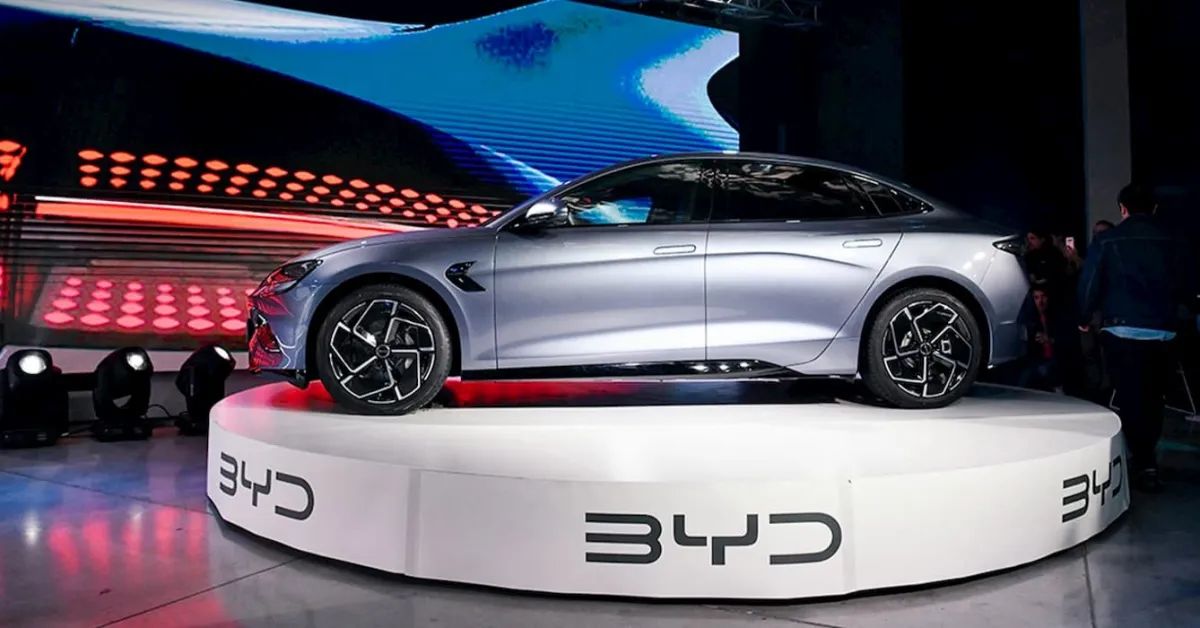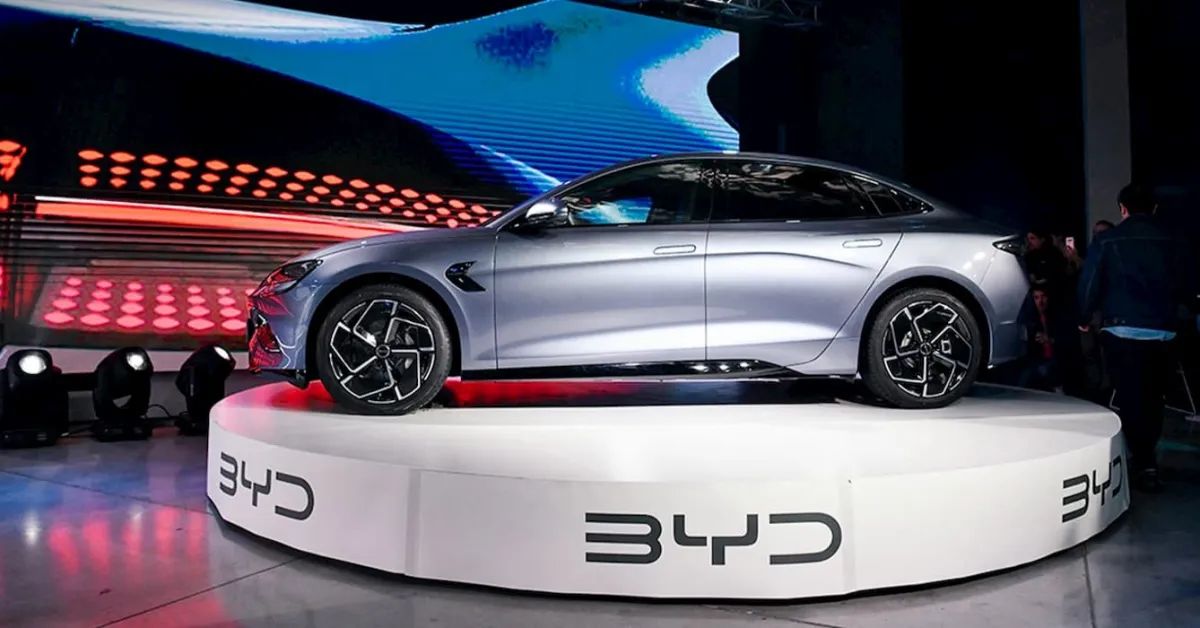BYD Denies Shocking Rumors of Indian Factory Plans!
BYD Denies Reports of New EV Factory in Hyderabad, India
In recent news, electric vehicle (EV) manufacturer BYD has officially refuted claims regarding its potential establishment of a car manufacturing facility in Hyderabad, India. This announcement emerged in response to various media reports suggesting that the Chinese automotive giant was considering expanding its operations into the Indian market through the construction of a new factory. The news was widely disseminated on social media platforms, sparking interest and speculation among industry analysts and consumers alike.
Background on BYD
BYD, which stands for Build Your Dreams, is a key player in the global EV market and has made significant advancements in electric mobility. Founded in 1995, the company has evolved from a battery manufacturer to one of the world’s largest manufacturers of electric vehicles, including buses, trucks, and passenger cars.
The company has been expanding its footprint in various international markets, including Europe and North America, as part of its strategy to promote electric mobility and sustainable transport solutions. Given India’s growing interest in electric vehicles and the government’s push for EV adoption, the speculation regarding BYD’s potential factory in Hyderabad was not unexpected.
The Speculation
Media reports sparked excitement about BYD’s possible investment in India, suggesting it could lead to enhanced production capabilities and create job opportunities within the region. Analysts highlighted that India is a crucial market for electric vehicles, given its vast population and increasing urbanization. The Indian government has also been offering incentives for EV manufacturers, making the country an attractive destination for global EV players.
- YOU MAY ALSO LIKE TO WATCH THIS TRENDING STORY ON YOUTUBE. Waverly Hills Hospital's Horror Story: The Most Haunted Room 502
BYD’s Official Statement
In a recent tweet, BYD clarified that it has no current plans to set up a manufacturing facility in Hyderabad or anywhere else in India. This announcement aimed to dispel any misconceptions that may have arisen from the earlier reports. The company emphasized its commitment to informing stakeholders accurately and promised to keep the public updated on any future developments regarding its operations and investments.
Impact on the Indian EV Market
The announcement from BYD comes at a time when India’s electric vehicle market is burgeoning, with various domestic and international players vying for a share of this growing segment. The Indian government has set ambitious targets for EV adoption, aiming to have a significant percentage of new vehicles sold being electric by 2030. Moreover, various state governments are also formulating policies to attract EV manufacturers, creating a competitive environment.
While BYD’s decision not to establish a factory may seem like a setback for some, it does not diminish the overall momentum in the Indian EV sector. Local manufacturers continue to innovate, and other global players are still looking at opportunities within the market. The current landscape suggests that there is ample room for growth, even without BYD’s involvement.
Looking Ahead
As the global push towards sustainable transportation continues, the interest in the Indian EV market is likely to persist. Companies like BYD are essential players in the global supply chain and can influence the direction of the market through partnerships, technology sharing, and strategic investments.
For consumers in India, the absence of a BYD factory means that they will continue to rely on existing players for their electric vehicle needs, which include options from both Indian manufacturers and other international brands. The competition in the EV space is anticipated to drive innovation and lower prices, ultimately benefiting consumers.
Conclusion
While BYD has refuted the claims of establishing a factory in Hyderabad, the Indian electric vehicle market remains vibrant and full of potential. The company’s clarification serves as a reminder of the importance of accurate information in the fast-paced world of automotive news. As the industry evolves, stakeholders will be keenly watching how both domestic and international companies respond to the rapidly changing landscape and government initiatives aimed at promoting electric mobility.
For now, consumers and investors alike should stay informed about the ongoing developments in the Indian EV market, as it continues to be a focal point for technological advancements and sustainable transportation solutions. With or without BYD’s immediate involvement, the future of electric vehicles in India is promising and poised for significant growth.

BYD refuted media reports claiming the Chinese EV giant is mulling setting up a car factory in Hyderabad, India. pic.twitter.com/oHJsXWAW9P
— Indian Tech & Infra (@IndianTechGuide) April 1, 2025
BYD refuted media reports claiming the Chinese EV giant is mulling setting up a car factory in Hyderabad, India.
In an unexpected twist, BYD, one of the largest electric vehicle (EV) manufacturers in the world, has publicly denied reports suggesting that it was considering establishing a car factory in Hyderabad, India. This denial comes amidst growing interest from various automakers to expand their presence in the Indian market, which has seen a surge in demand for electric vehicles. The news was first reported by Indian Tech & Infra, but BYD’s swift refutation has raised eyebrows in the industry.
The Background of BYD and Its Global Ambitions
BYD, which stands for Build Your Dreams, has made significant strides in the global EV market. Founded in 1995 and headquartered in Shenzhen, China, BYD has been at the forefront of battery technology and electric vehicle manufacturing. The company has established a strong presence not only in China but also in key international markets, including Europe, North America, and Latin America.
In recent years, India has become an attractive destination for EV manufacturers due to its large consumer base and government incentives aimed at promoting sustainable transportation. Many companies, including Tesla and Hyundai, have announced plans to enter or expand operations in India. With this backdrop, rumors of BYD setting up a factory in Hyderabad seemed plausible to many industry observers.
The Denial from BYD
BYD’s official statement clarifying that it is not planning to set up a car factory in Hyderabad came as a surprise to many. The company emphasized that while it is exploring various opportunities globally, it has no immediate plans for manufacturing in India. This statement was crucial in dispelling rumors that could have potentially misled investors and consumers.
In the statement, BYD reiterated its commitment to focusing on existing markets and strengthening its supply chain. The company also mentioned that it is always evaluating new opportunities but is not ready to make any definitive moves regarding a factory in India at this time.
Implications for the Indian EV Market
The denial from BYD has significant implications for the Indian EV landscape. India is rapidly transitioning towards electric mobility, with the government pushing for EV adoption through various initiatives. The expectation that major players like BYD would set up manufacturing units could have stimulated the market further. However, with BYD stepping back, the immediate prospects for new manufacturing plants may appear more limited.
This development could lead to a more cautious approach by other international manufacturers who might have been considering India as a potential production hub. They may now reassess the viability of entering the Indian market, given the uncertainty surrounding local manufacturing commitments and supply chain challenges.
The Future of Electric Vehicles in India
Despite BYD’s decision, the future of electric vehicles in India remains bright. The Indian government has set ambitious targets for EV adoption, aiming to have a significant portion of the vehicle fleet electrified by 2030. This initiative is supported by various policies, including subsidies for EV buyers and investments in charging infrastructure.
Moreover, local manufacturers like Tata Motors and Mahindra are ramping up their EV production, which could fill the gap left by international giants. Tata, for instance, has made headlines with its impressive portfolio of electric vehicles that cater to the Indian market’s needs, combining affordability with advanced technology.
Consumer Interest in Electric Vehicles
Consumer interest in electric vehicles is at an all-time high in India. With increasing awareness of environmental issues and rising fuel prices, more people are considering electric cars as a viable alternative. Brands that offer affordable and feature-rich electric models are likely to capture the attention of the Indian consumer.
In addition, the growing availability of charging stations and improvements in battery technology are making electric vehicles more accessible. As consumers become more comfortable with the idea of owning an EV, the market is expected to grow exponentially, regardless of whether BYD enters the fray.
The Role of Local Manufacturing in India’s EV Strategy
Local manufacturing will play a critical role in India’s EV strategy. By producing vehicles domestically, manufacturers can reduce costs, improve supply chain efficiency, and create jobs. This is particularly important as the country seeks to bolster its manufacturing sector and reduce reliance on imports.
Moreover, local production can help in customizing vehicles to meet the specific needs of Indian consumers. Factors such as climate, road conditions, and consumer preferences can be better addressed by manufacturers that understand the local market dynamics.
The Importance of Strategic Partnerships
For international players like BYD, establishing strategic partnerships with local firms could be a more viable approach than setting up manufacturing facilities. Collaborations can provide insights into the Indian market, facilitate smoother entry, and share the financial burden of setting up operations.
Such partnerships can also accelerate the development of EV technology tailored to local conditions, enhancing the overall competitiveness of the brand in the Indian market.
Conclusion: The Road Ahead for EVs in India
While the news of BYD refuting plans to set up a factory in Hyderabad may have disappointed some, it does not dampen the prospects for electric vehicles in India. With a government committed to promoting EV adoption and local manufacturers stepping up to meet demand, the future of electric vehicles in India looks promising.
As the market evolves, it will be fascinating to see how international players navigate the landscape and whether they will eventually reconsider their stance on manufacturing in India. For now, consumers can look forward to an expanding range of electric vehicles that promise to make sustainable transportation a reality.

